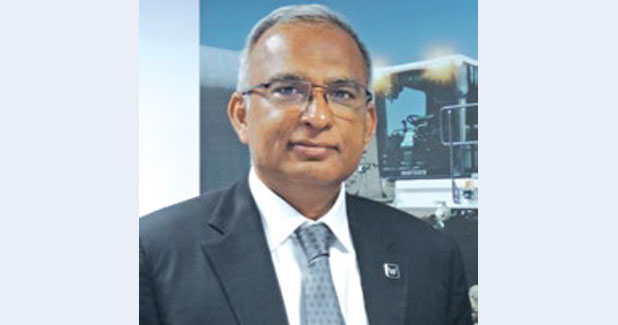
New technologies gaining traction
With the growing pace of road development, the upcoming demand for road rehabilitation, the severe shortage of aggregates, and the need to reduce the project execution time, Wirtgen Group's new paving technologies are gaining traction in India. <span style="font-weight: bold;">Ramesh Palagiri, Managing Director and CEO, Wirtgen India,</span> elaborates.<br /><br />The Wirtgen Group has been continuously innovating its products in the brands Wirtgen, Vogele, and Hamm. They are not only global market leaders but also innovation leaders, with the average age of a machine being not more than three years. The Wirtgen Group has been consistently developing products which offer better efficiency in terms of fuel consumption and this helps in sustainable development and less carbon emissions, lower life cycle costs and better productivity of these machines.<br /><br />To start with, the company has introduced cold milling and cold recycling, two technologies are reasonably well accepted in the market. Soil stabilisation is also becoming very popular and all these technologies result in saving resources, faster construction and cost economical solutions. The cement treated base or sub-base (CTB or CTSB) not only reduces aggregate requirement, but also ensures stronger foundation and reduces layers.<br /><br />The cold recycling reuses 100 per cent of asphalt pavement material and only addition is bitumen two to three per cent, which rehabilitates the asphalt pavement to its original properties.<br /><br />Hot recycling is an economical and environment-friendly rehabilitation method for asphalt surface courses where many types of surface damages like rutting, cracking, lack of skid resistance, pavement irregularities, excessive bitumen etc can be repaired on a large scale in a short period of time. The first Wirtgen hot recycler has arrived in India and the project would start shortly.<br /><br />For concrete paving, the Wirtgen slipform pavers can now offer dual-layer concrete paving, where a single machine is used for dual layer concrete paving, the bottom layer and the top layer concrete are paved in a synchronised operation. It is additionally ensured that both the top and bottom layers are paved 'wet-in-wet' regardless of weather or site conditions. This can be done with single paver or with two pavers where it is necessary to distribute the operating weight to two separate machines.<br /><br />In asphalt paving, the Vogele in-line paving, where the binder and surface courses are paved 'hot-on-hot' in a single pass, greatly accelerating activities on a job site. In addition, it is not necessary to completely close down the road. The three machines - a paver for the binder course, a paver for the surface course and a material feeder - work 'in-line' or one behind the other, leaving one lane open to traffic, making it an ideal solution for rehabilitation of heavily travelled roads. The process is both economical and highly eco-friendly,the layer thickness can be reduced in 'hot-on-hot' paving, thus lowering consumption of the costly surface course mix.<br /><br />The innovative Vogele SprayJet technology is helpful where bitumen emulsion can be sprayed and overlaid with an asphalt surface course. The special advantages of the innovative Vogele SprayJet technology lie in its cost-efficiency and excellent environmental credentials. The process optimises the placement of thin, resource-saving, low-noise asphalt layers. <br /><br />Vogele also offers an innovative and economical solution for the road construction sector with the non-contacting road scan temperature measurement system. The scanning and documentation of the freshly paved asphalt's temperature is already specified in tenders in several markets, and in others there are definitive plans to implement this. After completion of the construction job, contractors can furnish detailed evidence that the temperature was maintained within the correct range using the recorded GPS data, including precise tracking.<br /><br />These innovative technologies offered by the Wirtgen group are definitely getting traction. Though it has been relatively slow, Wirtgen is hopeful that with the pace of road development in India, the upcoming demand for road rehabilitation, the severe shortage of natural resources like aggregates, and the need to reduce the project execution time, these technologies will be further integrated.<br /><br />Hot recycling is an economical and environment-friendly rehabilitation method for asphalt surface courses where many types of surface damages like rutting, cracking, lack of skid resistance, pavement irregularities, excessive bitumen etc can be repaired on a large scale in a short period of time.<br />


 +91-22-24193000
+91-22-24193000 Subscriber@ASAPPinfoGlobal.com
Subscriber@ASAPPinfoGlobal.com